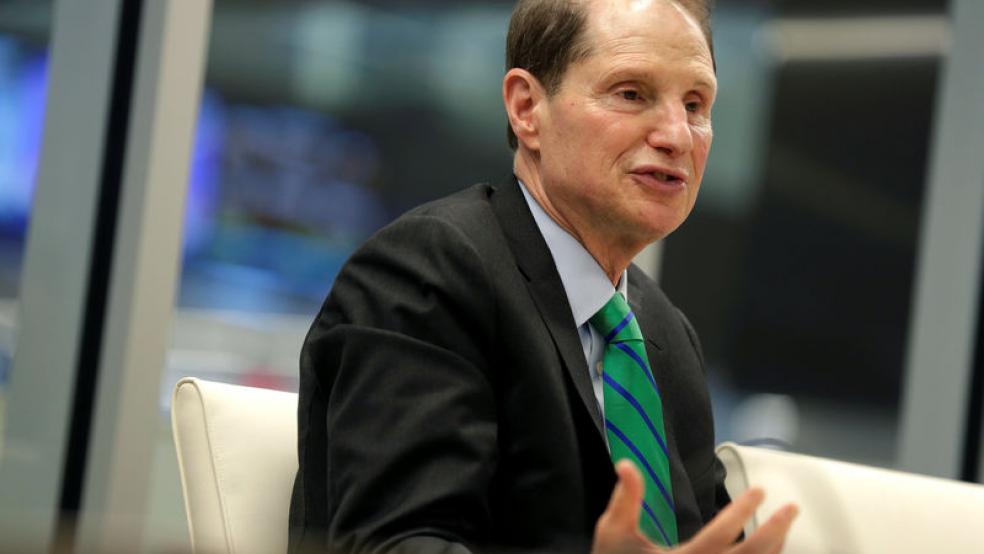The challenges Biden faces in reaching a bipartisan infrastructure deal were on display at a Senate Finance Committee hearing Tuesday on financing options for such a package.
“Right now in Washington, D.C, it would be hard to get members of Congress to agree on the proper way to butter toast, but I think everybody understands the importance of upgrading infrastructure,” Sen. Ron Wyden (D-OR), the committee chair, said in his opening remarks.
But Wyden also said that, to his mind, the “obvious answer” to the tough question of how to pay for infrastructure in a fair way was to have businesses pick up the tab: “It is long past time for mega-corporations to pay a fair share for building and repairing roads and bridges. They drive trucks across America’s roads and highways. They send products to market through our airports and our waterways. They rely on our power grids and communication systems. And it seems to me to be just basic fairness that they ought to pitch in for the infrastructure that makes our country an economic superpower.”
Wyden said that “mega corporations” have never in modern history contributed less to federal revenues than they do now, and he again cited Congressional Budget Office data indicating that in the wake of the 2017 GOP tax overhaul, corporate income tax revenue is down nearly 40% from the 21st century average. He also rejected the Republican idea of having user fees pay for infrastructure, arguing that those fees suggest that “middle class workers are supposed to pay what mega-corporations will not.”
Moments later, Sen. Mike Crapo (R-ID), the top Republican on the Finance Committee, called the idea of corporate tax increases “counterproductive and a non-starter on my side of the aisle.” Crapo defended looking to user fees, including those on electric vehicle drivers, to pay for infrastructure.
“There is no silver bullet for how to pay for transportation infrastructure, but historically it has been paid for by user fees, which makes sense,” he said. “To maximize use of taxpayer dollars, we should consider proposals to attract private capital for infrastructure projects, repurpose unused federal funds, and improve and expand upon existing infrastructure loan programs.”
Both senators agreed on one possible funding option: Wyden and Crapo both expressed openness to renewing the Build America Bond program created under the Obama administration.
The Hill’s Naomi Jagoda explains that under that program “state and local governments could issue taxable bonds in 2009 and 2010 and receive a subsidy from the federal government for a portion of their interest costs. The program was popular, with about $180 billion of bonds issued, but was not renewed when it expired.”
"This is an approach that Congress has to return to because it works," Wyden said. Crapo agreed, saying the bonds “can be a significant way of incentivizing private capital into our infrastructure.”
Wyden called that “an outbreak of major bipartisanship.”
Read more about the Build America Bond program and a similar new proposal at The Hill.





